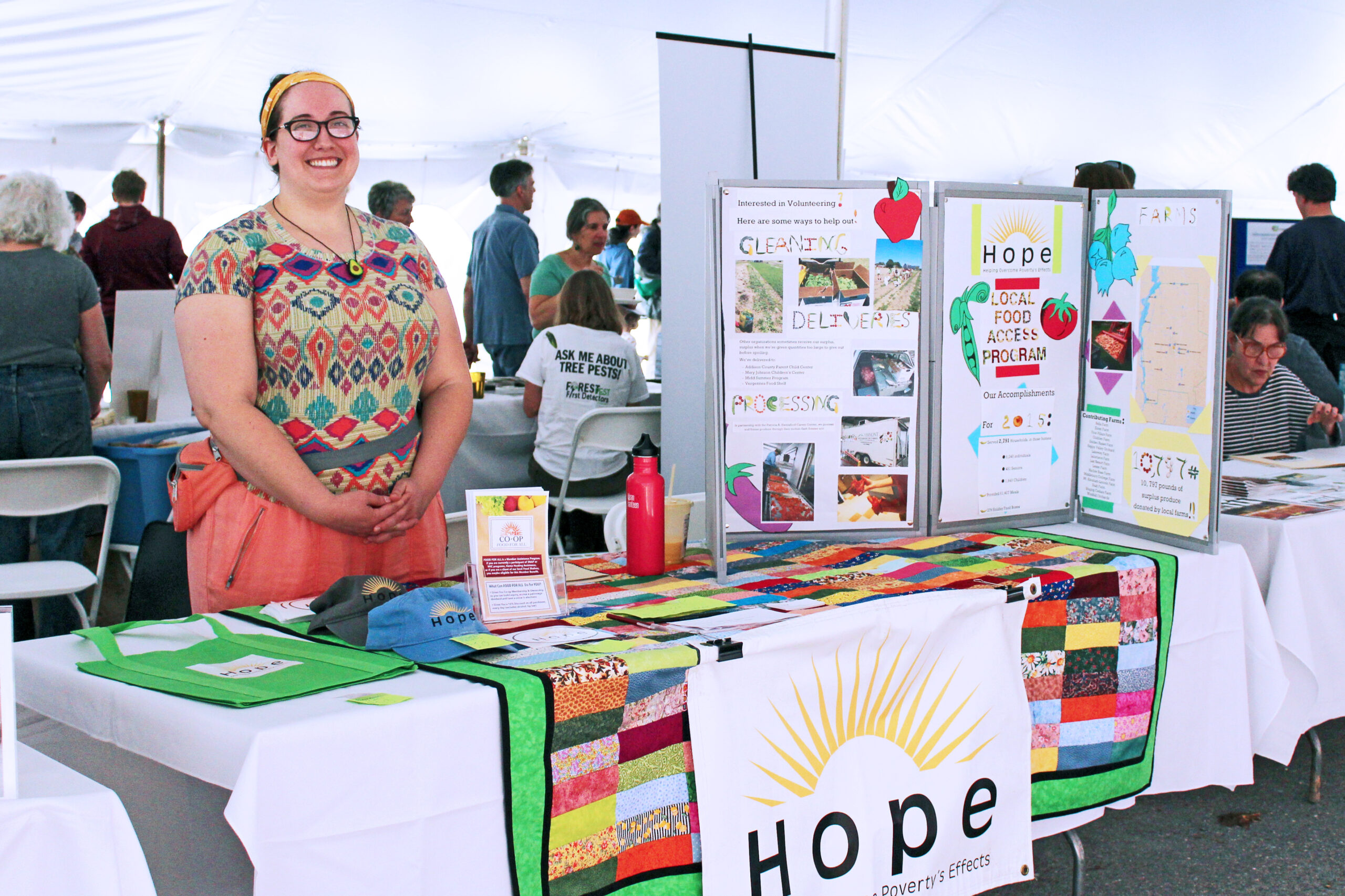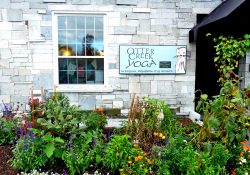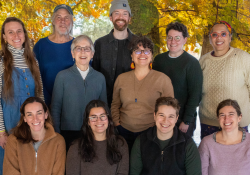
Vermont’s Local Food System: A Report Card – Part 2
At a recent meeting of the Addison County Hunger Council, three representatives offered interesting perspectives regarding Vermont’s local food systems, and shared the successes and challenges associated with serving each particular group they represented. The Council explored issues throughout the local food system, from the farm workers who produce the food, to the distribution system for getting food to those who need it most. Council members discussed available resources, what supports are necessary, and what opportunities are present.
The representatives sharing presentations were Dr. Teresa Mares of UVM, Lily Bradburn of HOPE, and Jonathan Corcoran of ACORN. Dr. Mares shared insights about how our local food system serves the growing migrant farm worker population in Vermont. Lily Bradburn spoke about how these systems serve members of our community who are food insecure, and Jonathan Corcoran discussed local food system goals and challenges for our state as a whole. Here at the Co-op, we spend a lot of time thinking about local food and the systems that support it, though it was very interesting and unique to examine it though the lens of these diverse groups of people. Through a three-part review of these presentations, we hope to share what we learned with all of you. In Part 1, we shared about Vermont’s local food system through the eyes of the migrant farm workers, and now it’s time to learn about how our local food system serves the families in Vermont who are food insecure.
Food Insecurity in Vermont:
Food security is generally defined as the lack of access to enough food to fully meet basic needs at all times due to lack of financial resources.
- One in five Vermont children experiences hunger or food hardship.
- More than 20,000 children under 18 live in food insecure households in VT.
- Nearly 80,000 Vermonters of all ages live in food insecure households.
Food Insecurity with Hunger:
Households that are classified as food insecure with hunger are those in which adults have decreased the quality and quantity of food they consume because of lack of money to the point where they are quite likely to be hungry on a frequent basis, or in which children’s intake has been reduced due to lack of family financial resources, to the point that children are likely to be hungry on a regular basis and adults’ food intake is severely reduced.
-
6% of all Vermont households are food insecure with hunger
There are state and federal programs in place to address this serious issue, though all too often, the food available to these members of our community is of the highly processed variety. A number of years ago, representatives from HOPE, Middlebury College, ACORN, the local business community, along with several local farmers, including Spencer Blackwell from Elmer Farm and Will Stevens of Golden Russet Farm, got together to discuss the possibility of increasing the amount of locally grown food offered at HOPE’s food shelf. This group recognized that Addison County farmers grow vast amounts of beautiful, healthy organic fruits and vegetables, which are often unavailable or too pricey to those who need it most. They also recognized that these farms often had excess produce available that would not be destined for retail markets, which could instead be diverted to the food shelf.
The Co-op contributed $8,000 to HOPE for the purpose of supporting this work, which allowed HOPE to hire a part time Local Food Access Coordinator. This new hire, Gretchen Cotell, would build on the work that had already been done on a volunteer basis by the Addison County Gleaning Program. Gretchen successfully wrote a grant for the Hannaford Career Center to obtain a flash freezer unit from the USDA, which allows surplus produce gleaned from local farms to be frozen and stored for food shelf clients to use well beyond the typical growing season.
Last October, Gretchen passed the reins to a new Local Food Access Coordinator – our deli’s own Lily Bradburn! Lily is doing a fantastic job of elevating this program to new heights. By the end of 2015, more than 10,797 pounds of surplus produce had been donated by local farms! This takes monumental and tireless effort on the part of the farmers and a heck of a lot of coordinating and processing effort from Lily. She has teamed up with multiple volunteer groups to process several hundred pounds of local carrots, and has cooked up over 240 quarts of soup using gleaned and donated local produce. Lynn Coale and Woody Danforth at the Hannaford Career Center have also been key to this effort, thanks to the use of their culinary arts facility where much of this processing takes place.
“It has been immensely gratifying to see families that formerly left the food shelf with mostly non-perishable, processed food now able to select colorful armloads of red, orange and green veggies” Jeanne Montross, Executive Director of HOPE, said. “We are confident that this trend will continue.”
If Lily’s work thus far in 2016 is any indication, the Local Food Access Program will most certainly allow the trend to continue. Lily is working with farmers to negotiate contracts for crops that do not typically end up being surplus on the farm, so that these foods can be frozen, used in holiday food boxes, or made into value-added products like soups and stews. Last month, over 100 gallons of soup were made through a collaborative project called Just Soup, where Lily works with fellow Hunger Council Members, Ashley Laux and Elle Bacon, to arrange student volunteers from Middlebury College to collect gleaned and donated products and create soups in the Hannaford Career Center kitchen. The soup is very popular among HOPE’s patrons – by month’s end only 13 gallons of it remained! Lily is also hard at work setting up events for food shelf patrons – taste tests, cooking demonstrations, recipe swaps – all events geared toward encouraging the incorporation of more healthy, local foods into daily diets. Additionally, Lily is assisting HOPE clients in enrolling in the Co-op’s Food For All program, and arranging tours at the Co-op, with a focus on familiarizing patrons with the bulk department and the significant savings that can be realized when items are purchased in that manner.
We’re incredibly grateful for Lily’s efforts, and for everyone at HOPE, the many volunteers, the Hannaford Career Center, and, of course, the local farmers that make this all possible. Thanks to their tireless work, HOPE’s Local Food Access program is thriving, and access to healthy, local foods for the food insecure members of our community is on the rise.
Here’s a list of the local farms contributing to this program:
- Bella Farm
- Elmer Farm
- Four Pillars Farm
- Gildrien Farm
- Golden Russet Farm
- Happy Valley Orchard
- Lakeway Farm
- Lalumiere Farm
- Last Resort Farm
- Lester Farm
- Marble Rose Farm
- Middlebury College Organic Garden
- Mt. Abraham-Lincoln Farm
- Nash Farm
- New Leaf Organics
- Singing Cedars Farm
- Windfall Orchards



